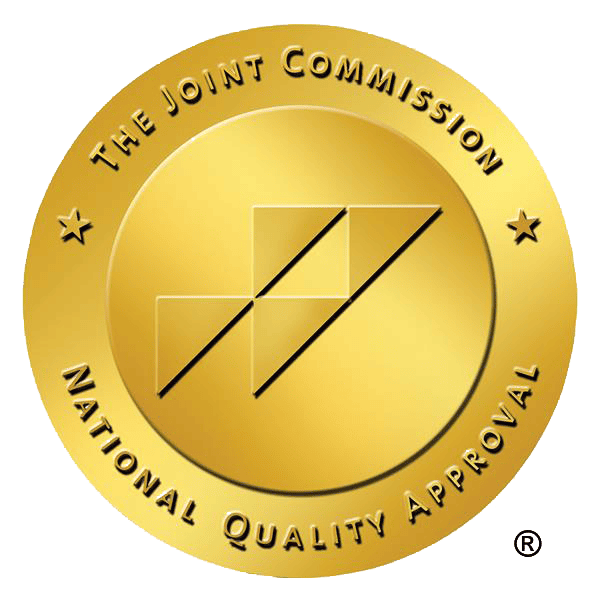Individuals suffering from dual-diagnosis disorders face unique challenges that can make their recovery journey more complex. By understanding these aspects, everyone can increase their knowledge and compassion towards those struggling with this multifaceted condition. This can improve their chances of achieving lasting wellness.
What Is a Dual-Diagnosis Disorder?
Approximately 9.2 million adults have a dual-diagnosis disorder as reported by SAMHSA (Substance Abuse and Mental Health Services Administration). A dual-diagnosis disorder or co-occurring disorder is when someone has a mental health disorder and co-occurring substance use disorder.
Individuals often face complex challenges as each disorder can exacerbate the symptoms of the other, leading to more severe effects on an individual’s overall well-being. The interaction between these disorders can include substance abuse potentially triggering or worsening mental health disorders and vice versa.
Dual-Diagnosis Disorder and Addiction
Dual-diagnosis disorder and addiction are closely intertwined concepts. Dual diagnosis refers to the coexistence of a substance use disorder and a mental health disorder, while addiction specifically focuses on the dependency or compulsive behavior related to substance abuse.
In many cases, individuals with dual-diagnosis disorders turn to substances as a means of self-medication, attempting to alleviate symptoms of their underlying mental health condition. It’s essential to recognize that addiction in the context of dual diagnosis is not solely about physical dependence on drugs or alcohol but also includes psychological dependence and problematic patterns of substance abuse.
This interplay between addiction and mental health disorders can contribute significantly to the complexity and severity of both conditions, requiring specialized treatment approaches that address both aspects simultaneously.
Dual Diagnosis and Mental Health
Dual diagnosis is common for individuals with mental health disorders, such as depression, anxiety, bipolar disorder, or schizophrenia, to also struggle with substance abuse or addiction.
The relationship between dual diagnosis and mental health is complex. Substance abuse can worsen pre-existing mental health symptoms or trigger the onset of new ones. Likewise, untreated mental health conditions may drive individuals towards self-medication through drug or alcohol use as a way to cope and alleviate their distressing symptoms. Addressing both the substance use disorder and the underlying mental health issue is crucial in dual diagnosis treatment.
Signs of a Dual Diagnosis Disorder
Identifying the signs of dual diagnosis and mental health disorders can be challenging as symptoms may vary depending on the specific disorders involved. However, there are some common signs to watch for:
- Substance abuse: Frequent or excessive use of drugs or alcohol, inability to control substance use, secretive behavior around substance use, cravings, or withdrawal symptoms when not using.
- Mood changes: Drastic shifts in mood, persistent feelings of sadness or hopelessness, anxiety, irritability, anger outbursts.
- Cognitive difficulties: Trouble concentrating or making decisions, memory problems.
- Impaired functioning: Decline in performance at work or school, neglecting responsibilities and relationships.
- Social withdrawal: Isolation from friends and family, loss of interest in activities previously enjoyed.
- Physical health changes: Sudden weight loss or gain without an apparent cause; changes in sleep patterns; unexplained aches and pains.
- Risky behaviors: Engaging in reckless actions such as driving under the influence and taking unnecessary risks that endanger oneself or others.
Treatment for Dual Diagnosis Disorders
Treatment for dual-diagnosis disorders typically involves a comprehensive approach to address both conditions simultaneously. For starters, integrated treatment approaches combine therapies and interventions from both substance abuse treatment and mental health care into a cohesive, coordinated plan. It ensures that individuals receive holistic care targeting all aspects of their dual diagnosis.
For certain substance use disorders and co-occurring mental health conditions, medications may be prescribed to help manage withdrawal symptoms and cravings and to stabilize mood. Additionally, individual therapy, group therapy, peer support groups, and family therapy can be beneficial in addressing underlying psychological issues and developing coping skills to manage triggers and cravings.
Furthermore, providing education about addiction, mental health conditions, and relapse prevention helps individuals develop insight into their specific needs while acquiring tools to cope with stressors effectively. Encouraging healthy habits such as regular exercise, proper nutrition, and adequate sleep can promote overall well-being while reducing the risk of relapse.
Therapies for Dual Diagnosis Disorder
Various therapies can be effective in treating dual-diagnosis disorders. Some of them range from cognitive-behavioral therapy to family, offering unique benefits.
Cognitive-Behavioral Therapy (CBT)
This therapy focuses on identifying and changing negative thought patterns and behaviors. These behaviors and thoughts are associated with both substance abuse and mental health conditions. It helps individuals develop positive coping strategies, problem-solving skills, and relapse-prevention techniques.
Dialectical Behavior Therapy (DBT)
DBT is particularly helpful for individuals with difficulties regulating emotions or engaging in self-destructive behaviors. It combines elements of CBT with mindfulness practices, interpersonal effectiveness training, and emotional regulation techniques.
Family Therapy
Involving family members or loved ones in the treatment process can support improved communication, and address dysfunctional dynamics within relationships. It also promotes understanding of dual diagnosis disorders, facilitates healing within the family system, and provides a strong support network post-treatment.
Holistic Therapies
Several holistic approaches can complement the treatment of dual-diagnosis disorders. These may include mindfulness meditation, yoga, art therapy, music therapy, and equine-assisted therapy. Such approaches aim to promote overall well-being by addressing emotional, spiritual, and physical aspects of recovery.
Quality Dual Diagnosis Treatment in Austin, TX
Take the first step towards holistic healing and lasting recovery at The Prairie Recovery Center in Austin, Texas. Our compassionate team specializes in dual diagnosis treatment at our Joint Commission-accredited facility. With evidence-based therapies, personalized treatment plans, and a supportive community, we are dedicated to helping you or your loved one find balance and wellness.
Contact us today to take the first steps on your journey to recovery.






